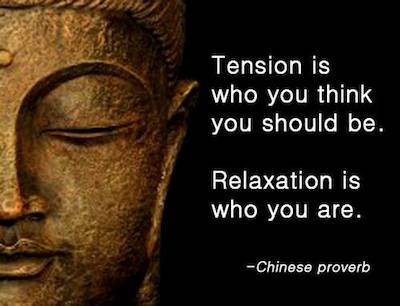Chögyam Trungpa once said that instead of asking how we can apply the teachings to our lives, we can insert ourselves into the dharma.
Dharma is a word that refers to the teachings of the Buddha, but it also means truth, the way things are.
How are things?
We create our own suffering and dissatisfaction with our own minds.
We suffer because we see ourselves as fixed, independent, ongoing entities.
We suffer because we habitually grasp for things with the hope that we will be “fixed.”
We suffer because, in reality, we don’t need to be fixed. The poverty mentality we have about ourselves is the actual problem.
Our actual fundamental nature is buddha nature or basic goodness. This means that underlying our conditioning, our habitual patterns, our conceptual reasoning and framework, there is a quality of well-being, healthiness, and sanity. Innately, we are fine just how we are.
So, through the discipline and exertion of our sitting practice, through study and contemplation of the View, or the road map—which we learn from studying the teachings left by the Buddha and the great masters who have come since the Buddha’s time and offered their insight and commentary—we touch in with that experience of basic goodness.
Because of this, we do not need to try to apply the teachings to our lives, as if we were putting on the dharma like a pair of pants and a shirt.
The dharma is not prescriptive in that way—and thank Buddha for that.
The dharma isn’t a rule book that says when “this” happens, do “that.” When your child throws a tantrum, say these magic words to her. When Judy at work gossips about the manager, say the following mantra.
Thankfully, this is not the case; if it were, the teachings of the Buddha would just be another thing to hold over our heads, to judge ourselves and others by, to feed our pride or shame when we did or didn’t live up to the “rules.”
Instead, we can embody an experience of our natural sanity and wellbeing, and we can act with gentleness, with a sense of openness and honesty. With a perspective on what causes our suffering (and the suffering of others).
We can act without an ego-agenda and just be kind and compassionate without indulging or placating the neuroses of others—without “idiot compassion” or words and actions that seem compassionate but just excuse and reinforce destructive behavior.

This is what the teachings of the Buddha are for—to help us wake up from our self deception, to offer a way to freedom out of the shackles of samsara.
If we can learn to manifest in the world without our habitual patterns, our judgments—to a lesser degree or for more and more of the time—and act in accord with the joyful discipline of our shamatha practice, further and further cleansing the dirty window of the obscurations of our inherently pure and perfect minds, then we don’t need any prescription on how to act.
We can just be, who we are, fully, and our actions that come from that mindful and present place will naturally be of benefit—to ourselves and others.
When my mind is settled from my practice, and I am tasting that sense of wellbeing and peace that exists at the core of my being, it engenders a feeling of relaxation, calm, and appreciation. From this sense of stillness and expansiveness comes a more skillful perspective and response to life’s moment to moment choices and challenges.
There’s no question of what to do in that moment; no instruction is required.
It is simple: listen, be genuine and kind, be honest, be brave enough to face the world with gentleness, and put the the wellbeing of others before ourselves.
And we do it because it’s obvious, because it feels right and good, and because we see the results, the cause and effect of our actions—not because we were told do it, or because we’re trying to be a good little girl or boy.
~
~
Author: Travis May
Image: Victoria Shambhala









Read 0 comments and reply